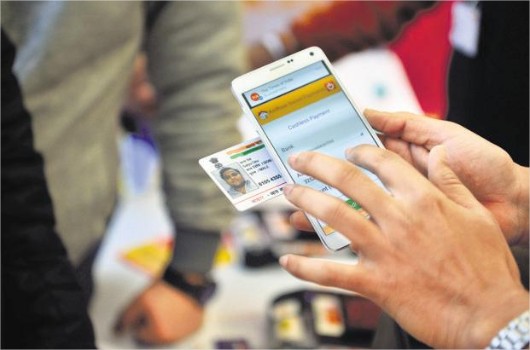The world’s greatest repository of citizen data, India’s Aadhaar database, is now past the personal sector’s attain. That was the decision final week by the nation’s prime court docket, which refused to strike down the whole biometric-based system as unconstitutional. Now solely the federal government can use it, and that is an issue.
Fulfilling regulatory “know-your-customer,” or KYC, necessities by verifying a bunch of paperwork as soon as once more will price a lender about 1,000 rupees ($13.80). So-called Aadhaar e-KYC used to price solely 20 rupees, because the Bangalore-based tech lawyer Rahul Matthan instructed BloombergQuint. This concerned acquiring a buyer’s distinctive 12-digit identification quantity and querying the central database for an digital copy of non-public data together with title, deal with, date of delivery, gender, {photograph} and cellular quantity.

Now that e-KYC checks utilizing the database are prohibited, telcos should spend 100 rupees to bodily confirm each new connection, six instances greater than the price of Aadhaar-based registration, in accordance with Fitch Options Macro Analysis. That can gradual the momentum of offering new digital companies.
The ruling provides little leeway for the likes of Reliance Jio Infocomm Ltd., which used e-KYC to accumulate 215 million customers of its fourth-generation telecom service in simply 22 months. Any new regulation opening a facet door to the database additionally would face judicial scrutiny.
This can be a massive win for privateness, acknowledged in a separate Indian court docket ruling final yr as a basic proper. In gentle of that earlier judgment, it made sense to bar folks from agreeing, even voluntarily, to the industrial exploitation of their digital identities obtained by the state.
Nonetheless, simply as privateness is integral to bodily life, belief is central to financial life. And if it may be 50 instances costlier for somebody to make a service supplier (or its regulator) consider she actually is who she says she is, then the results cannot be good for the financial system, particularly for these simply beginning to style the advantages of monetary and digital inclusion.
Realizing the id of the client is a problem. KYC is “pricey and laborious, and massively duplicative,” as Singapore’s central financial institution chief Ravi Menon mentioned in a speech in 2016, describing it as “one of many greatest ache factors within the monetary trade.” In Hong Kong, a monetary establishment takes a mean of 38 days to finish the formalities and join a brand new consumer, in accordance with a survey.
